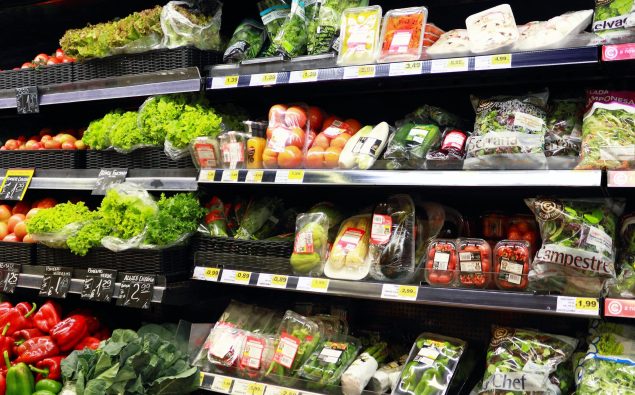Home » Business News • UK Business News » UK Shop Price Inflation Hits Lowest Since December 2021
UK Shop Price Inflation Hits Lowest Since December 2021
https://www.whatjobs.com/news/united-kingdom/uk-business-news/uk-shop-price-inflation-hits-lowest-since-december-2021

By Nithya Bose in Business News, posted April 2, 2024

UK shop price inflation has dropped to its lowest point since December 2021 “as retailers continued to compete fiercely to bring prices down for their customers.”
The British Retail Consortium (BRC) and NielsenIQ's latest Shop Price Index revealed a decrease in annual inflation to 1.3 percent in March.
This was a decline from February's 2.5 percent and below the three-month average of 2.2 percent.
Food inflation dropped to 3.7 percent in March from 5.0 percent the previous month.
This continued a 10-month trend of reductions and hitting its lowest since April 2022.
The inflation rate for fresh foods slowed to 2.6 percent, down from 3.4 percent in February.
Similarly, ambient food inflation slid to 5.2 percent from February's 7.2 percent, reaching its lowest since June 2022.
Non-food inflation also dropped to 0.2 percent in March, the lowest rate since January 2022, from 1.3 percent in the preceding month.
This decrease was supported by reductions in electricals, clothing, and footwear prices.
This was driven by retailers' increased promotional activities to boost consumer spending.
“The industry needs pro-growth government policy that supports investment and helps keep down prices for households up and down the country”
BRC chief executive Helen Dickinson said: “Shop price inflation eased to the lowest level since December 2021 last month as retailers continued to compete fiercely to bring prices down for their customers.
Need Career Advice? Get employment skills advice at all levels of your career
“While Easter treats were more expensive than in previous years due to high global cocoa and sugar prices, retailers provided cracking deals on popular chocolates, which led to price falls compared to the previous month.
“Dairy prices also fell on the month as farmgate prices eased, and retailers worked hard to lower prices for many essentials. In non-food, prices of electricals, clothing and footwear fell as retailers increased promotions to entice consumer spending.
“While these figures are good news for consumers, from this month, retailers face significant increased cost pressures that could put progress on bringing down inflation at risk.
”These costs include a 6.7% business rates rise, ill-thought-out recycling proposals, and new border checks – all at the same time as the largest rise to the national living wage on record.
“The industry needs pro-growth government policy that supports investment and helps keep down prices for households up and down the country.”
Follow us on YouTube, X, LinkedIn, and Facebook











